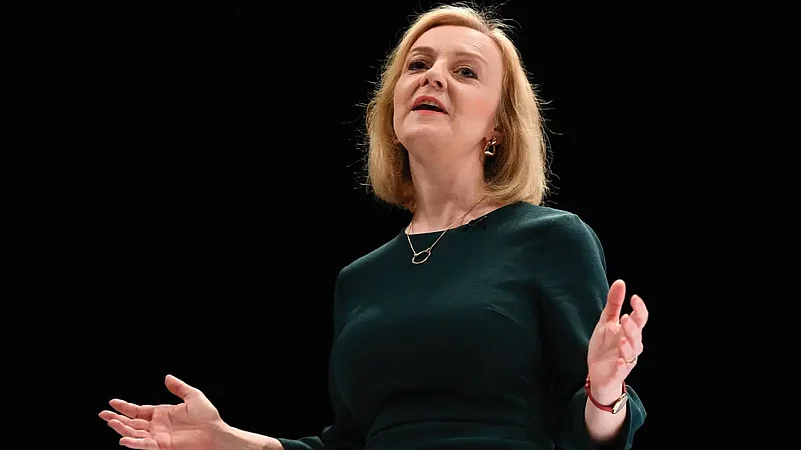On Thursday, Liz Truss became the shortest-serving Prime Minister of the United Kingdom after struggling to hold her position as the country’s premiere leader in the past few weeks. Truss also courted history by becoming the third female leader in British history after Theresa May and Margaret Thatcher. But was nominating a female leader any success when it came to upholding women’s rights?
Liz Truss Broke Gender Ceilings By Becoming UK's Third PM, But Did She Fare Well?
During her tenure as the Women’s and Equalities leader, former UK PM Liz Truss was widely criticised for her 'anti-woke' views on women’s issues and gender rights, proposing little to help women in the country, especially women of colour and those from the LGBTQ community.?

Breaking the “glass ceiling”, although she took the curve on women’s leadership in a male-dominated assembly an inch further, not so much on women’s rights.?
The former foreign secretary, and Women’s and Equalities leader, Truss did not fare quite well when it came to the welfare of her gender.?
During her tenure as the women’s leader, Truss was widely criticised for her “anti-woke” views on women’s issues and rights, proposing little to help women in the country, especially women of colour and those from the LGBTQ community.?
In 2021, the women and equalities committee, made up of MPs, accused her of treating the role as a “side hustle”.
In a controversial speech in 2o20, Truss had spoken about steering UK policies away from “fashionable” issues on race and gender and critiqued “pink bus feminism”.?
Although she had pledged to look into banning gay conversion, her stance on the same as a Women’s and Equalities Minister was not quite impressive. She was slammed for axing the initial plans of rolling out the Gender Recognition Plan and recognising the gender pay gap that largely exists in the UK.?
Speaking to the Independent, Mandu Reid, leader of the Women’s Equality Party said, “She used her platform during her leadership bid to whip up culture wars, play down the impact of the cost of living crisis, and appeal to an increasingly populist, right-wing base. Women are the poorest half of the population - we earn less and rely more on public services.”
Further, feminists have observed that Truss’s constant silence on women’s politics has been disturbing. She has never voted for abortion and reproductive rights. As a foreign secretary, Truss never made any comment on the overturning of the Roe v Wade judgment in the US that pulled back women’s rights to abortion.?
Her lack of solidarity with other women politicians and leaders was strongly on display with her deafening silence on Sanna Marin’s controversy. Marin was subjected to controversy and hate when a video of her partying with friends went viral on social media. While women leaders from different countries, including Former US Secretary of State Hillary Clinton, US Rep. Alexandria Ocasio-Cortez, New Zealand Prime Minister Jacinda Ardern, rallied to defend Marin, Truss’s silence spoke on behalf of her attitude towards the politics concerning women’s rights and freedom.?
In an interview with BBC, Truss identified herself as “Destiny’s Child Feminist”. What she meant was that women should be independent enough to stand up for themselves and crusade for their own rights rather than needing the protection of the state. They are not necessarily “victims”.
After coming to power when the UK is reeling under a severe economic crisis, Truss argued that the road to the economic welfare of the country is not by spending funds on social welfare but through a low tax policy.?
Feminists have argued that like Thatcher, Truss also failed to take into account that low spending on social welfare impacts a large section of the women workforce. Further, they believed that Truss’s regressive tax policy would have augured the financial woes of the poorly paid British women.?
While Truss’s exit from her short tenure fuels another political crisis in the UK, the question remains: Whether electing a woman leader make it any better for a state’s women?
-
Previous Story
 Israel-Hamas War: Angry Israelis Protest For Hostage Deal, Urge Netanyahu To 'Sign Deal Now'
Israel-Hamas War: Angry Israelis Protest For Hostage Deal, Urge Netanyahu To 'Sign Deal Now' - Next Story


















